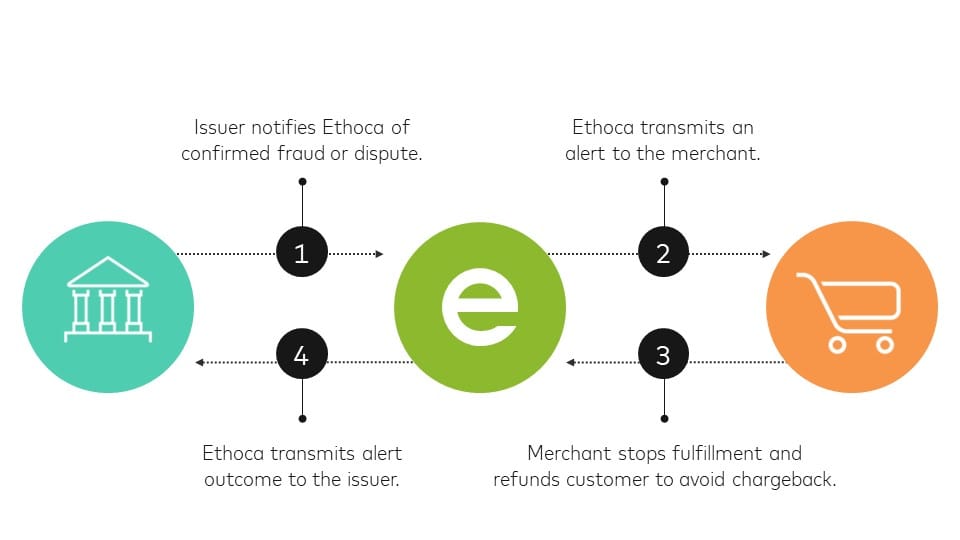
SuperPay helps accountants like yourself get paid as quickly as possible. Choose our platform to power your one-off and recurring billing.
In today's fast-paced and technology-driven world, traditional accounting practices are quickly being replaced by modern methods that utilize advanced tools and software. These tools not only streamline the accounting process but also enhance accuracy and efficiency, allowing accountants to focus on more strategic and value-added tasks. In this blog post, we will explore the essential tools that are revolutionizing the field of accounting and discuss how they are reshaping the way professionals handle financial data and analysis. From accounting software to cloud-based solutions, automation tools to data analysis software, we will delve into the key tools that are indispensable for modern accounting practices. Whether you are an accountant looking to upgrade your skills or a business owner interested in optimizing your financial management, this post will provide invaluable insights into the tools you need to stay ahead in today's competitive accounting landscape. So, let's dive in and discover the essential tools that are reshaping the world of modern accounting.
Understanding Modern Accounting: The Shift from Traditional Methods
In order to fully grasp the importance of modern accounting tools, it's crucial to understand the shift that has taken place from traditional accounting methods. Traditional accounting practices relied heavily on manual processes, paper-based records, and cumbersome spreadsheets. However, with the advent of technology, the accounting landscape has undergone a significant transformation.
Modern accounting practices leverage technology to automate and streamline various tasks, resulting in increased accuracy, efficiency, and productivity. This shift has not only improved the overall effectiveness of accounting processes but has also allowed accountants to take on more strategic roles within organizations.
One key aspect of modern accounting is the integration of software tools that handle various accounting functions, such as bookkeeping, financial reporting, and tax preparation. These tools enable accountants to work more efficiently, minimize errors, and provide real-time financial insights. Additionally, modern accounting practices emphasize the importance of data analysis and the use of cloud-based solutions for increased accessibility and collaboration.
By understanding the shift from traditional methods to modern accounting practices, professionals can appreciate the value and significance of the tools we will explore in the subsequent sections of this blog post. Let's now delve into the essential software tools that have become the backbone of modern accounting practices.
Essential Software Tools for Modern Accounting
In the realm of modern accounting, software tools have become essential for managing financial data, streamlining processes, and improving overall efficiency. These tools not only simplify repetitive tasks but also provide real-time insights, enhance accuracy, and enable collaboration. In this section, we will explore the key software tools that every modern accountant should have in their arsenal.
Accounting Software: Why It's Essential
Accounting software is the cornerstone of modern accounting practices. It automates various accounting tasks, such as invoicing, bookkeeping, and financial reporting, saving time and reducing errors. With accounting software, accountants can easily track income and expenses, manage cash flow, generate financial statements, and ensure compliance with tax regulations. This section will delve into the reasons why accounting software is essential for modern accounting practices.
Overview of Popular Accounting Software
There is a wide range of accounting software available in the market, each with its own features, pricing models, and target audiences. In this subsection, we will provide an overview of the most popular accounting software options, such as QuickBooks, Xero, and Sage, highlighting their key features and benefits. This will help accountants make an informed decision when selecting the software that best suits their needs.
Choosing the Right Accounting Software
Selecting the right accounting software is crucial for ensuring smooth operations and maximizing efficiency. In this subsection, we will discuss the factors to consider when choosing accounting software, such as scalability, integration capabilities, user-friendliness, and cost. We will also provide tips on evaluating different software options and selecting the one that aligns with the specific needs of the business or individual accountant.
By the end of this section, readers will have a comprehensive understanding of the importance of accounting software, an overview of popular software options, and guidance on choosing the right software for their accounting needs. Let's now move on to exploring another crucial aspect of modern accounting: cloud-based accounting tools.
Cloud-Based Accounting Tools
Cloud-based accounting tools have revolutionized the way accountants manage financial data and collaborate with clients and team members. With the power of cloud computing, these tools offer numerous benefits over traditional on-premise software. In this section, we will explore the advantages of using cloud-based accounting tools, discuss the security measures in place to protect sensitive financial information, and highlight some of the top cloud-based accounting solutions available in the market.
Benefits of Cloud-Based Accounting
Cloud-based accounting offers several advantages that make it an attractive choice for modern accounting practices. In this subsection, we will delve into these benefits, including real-time access to financial data from anywhere, seamless collaboration with clients and colleagues, automatic backups and data recovery, scalability, and cost-effectiveness. Understanding these advantages will help accountants make an informed decision when considering cloud-based accounting tools.
Security Measures for Cloud-Based Tools
One of the primary concerns when using cloud-based tools is data security. In this subsection, we will discuss the security measures implemented by reputable cloud-based accounting providers to safeguard financial data. Topics covered will include data encryption, user access controls, regular backups, and compliance with industry standards and regulations. By understanding the security measures in place, accountants can have peace of mind when using cloud-based accounting tools.
Top Cloud-Based Accounting Solutions
The market is flooded with various cloud-based accounting solutions, each offering unique features and functionalities. In this subsection, we will provide an overview of some of the top cloud-based accounting tools available, such as QuickBooks Online, Xero, and Zoho Books. We will explore their key features, pricing models, and target audiences, allowing accountants to make an informed decision when selecting a cloud-based accounting solution.
By the end of this section, readers will have a comprehensive understanding of the benefits of using cloud-based accounting tools, knowledge of the security measures implemented by reputable providers, and insights into some of the top cloud-based accounting solutions available in the market. Let's now move on to exploring another crucial aspect of modern accounting: automation tools.

Automation Tools in Modern Accounting
Automation has become a game-changer in modern accounting practices, allowing professionals to streamline repetitive tasks, reduce errors, and allocate more time to strategic decision-making. In this section, we will explore the importance of automation in modern accounting, discuss software tools that provide automation features, and provide insights on how to effectively implement automation in accounting processes.
Why Automation is Necessary in Modern Accounting
Manual data entry, reconciliation, and other repetitive tasks can be time-consuming and prone to errors. Automation eliminates these challenges by automating routine processes, such as data entry, bank reconciliations, and invoice generation. This subsection will delve into the reasons why automation is necessary in modern accounting, including increased accuracy, improved efficiency, and enhanced productivity.
Software that Provides Automation Features
Numerous software tools offer automation features specifically designed for accounting professionals. In this subsection, we will explore some of the leading automation tools available in the market, such as QuickBooks Online Advanced, Sage Intacct, and Xero. We will discuss the automation capabilities of these tools, including automated bank feeds, recurring transactions, and report generation, enabling accountants to make informed decisions when selecting automation software.
Implementing Automation in Your Accounting Processes
While automation tools can significantly enhance efficiency, it is essential to implement them effectively into existing accounting processes. In this subsection, we will provide actionable tips on how to successfully implement automation in accounting practices. This will include steps such as identifying tasks suitable for automation, setting up automation workflows, and training employees to utilize automation tools effectively.
By the end of this section, readers will understand the importance of automation in modern accounting, have knowledge of software tools that provide automation features, and gain insights into implementing automation effectively within their accounting processes. Now, let's explore the world of data analysis tools and their role in modern accounting.
Data Analysis Tools for Modern Accounting
Data analysis plays a crucial role in modern accounting practices, enabling accountants to derive valuable insights from financial data and make informed business decisions. In this section, we will explore the importance of data analysis in accounting, discuss data analysis software tailored for accountants, and provide guidance on how to effectively utilize these tools.
The Importance of Data Analysis in Accounting
Data analysis allows accountants to go beyond mere number crunching and uncover patterns, trends, and anomalies in financial data. In this subsection, we will discuss the importance of data analysis in accounting, including its role in identifying potential risks, detecting fraud, optimizing financial processes, and providing strategic insights for business growth.
Data Analysis Software for Accountants
To effectively analyze financial data, accountants need software tools specifically designed for data analysis. In this subsection, we will explore popular data analysis software options for accountants, such as Microsoft Excel, Tableau, and Power BI. We will discuss their features, functionalities, and compatibility with accounting data formats, empowering accountants to choose the right software for their data analysis needs.
How to Effectively Use Data Analysis Tools
Having the right data analysis tools is just the first step. It is equally important to know how to effectively use these tools to derive meaningful insights. In this subsection, we will provide practical tips and best practices for utilizing data analysis tools effectively. Topics covered will include data cleansing, creating meaningful visualizations, performing trend analysis, and using statistical functions to uncover patterns and anomalies.
By the end of this section, readers will understand the importance of data analysis in accounting, have knowledge of data analysis software tailored for accountants, and gain insights into effectively utilizing these tools to derive valuable insights from financial data. With this comprehensive understanding of essential tools for modern accounting practices, readers will be well-equipped to embrace and leverage the advancements in technology to enhance their accounting processes and drive business success.


